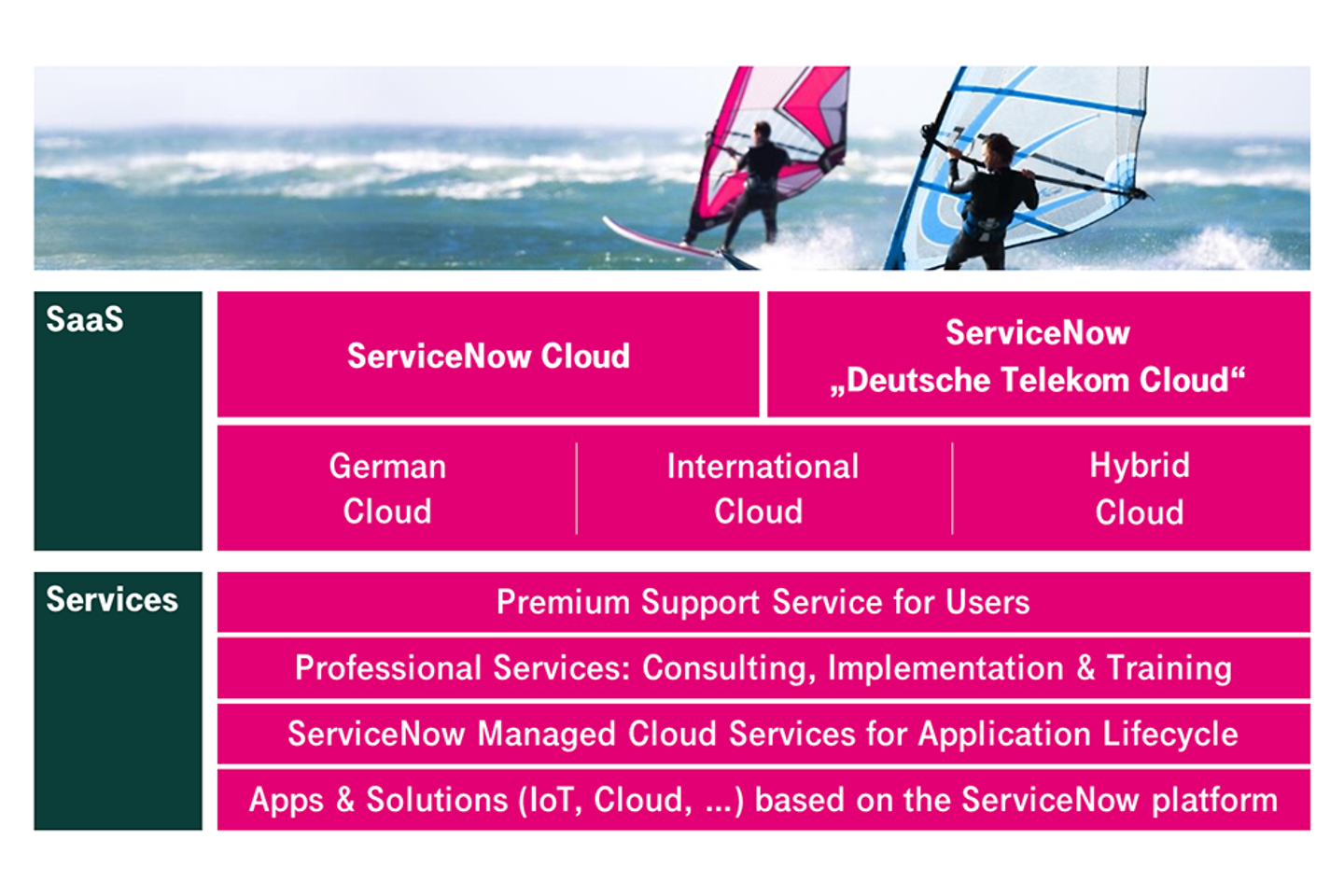
Digital transformation in companies can only be made meaningful with the help of automation and the digitalization of company processes. Cloud solutions form the basis for standardizing IT processes, optimizing employee workflows, and improving customer service processes. However, this can only be achieved if automation is pursued throughout the company.
With enterprise service management (ESM) from the cloud, companies can digitalize their entire service processes and thus become a service-oriented enterprise. Automated IT and business processes improve efficiency, reduce costs and make information in companies transparent and without media discontinuity.

A technician sends a notification about a defect by email. An employee informs IT support of a software error using the chat function. A member of the HR department informs Procurement by telephone of new vacancies being filled. Processes are still managed manually in various company departments and inquiries are laboriously answered by phone or email. There is no documentation of the questions and answers, and thus the service process has to start all over again if the same question is asked again by another person. That costs unnecessary time and money. Manual work results in media discontinuity and errors in data from different sources such as notes, emails, phone calls or chats – and consistent information transparency is prevented.
With an ESM solution like ServiceNow you can organize all relevant business processes. ESM systems make workflows efficient and enable the digitalization of business processes for internal IT, employees, and customers. The solution brings together company-wide processes in the enterprise cloud platform. One universal, service-focused platform for IT and business processes provides resilient and transparent information that can be accessed from any business area. This is how companies transform into service-oriented service providers – simply, efficiently, and with business value. T-Systems supports you end-to-end with best-practice approaches.

We accompany you on the way to digital transformation and service automation. Wherever you are – our experts support you at every point while you concentrate on your core business. Faster, automated workflows in the areas of IT, employee, and customer service help to increase your productivity and employee satisfaction. We offer end-to-end support, from SaaS services, professional services, and application management to the integration of ServiceNow with other cloud solutions.
Our consultants listen to your requirements and handle the provision and support of your ServiceNow instance. T-Systems is the only German service provider that offers ServiceNow from several cloud models on the market. The choice is yours: private cloud (Germany), public cloud (EMEA / international) or the hybrid cloud approach. This way you can meet all your requirements in terms of innovation and functionality as well as security.
Then we are happy to support you with application and operations management – the competent support, maintenance, and further development of your ServiceNow environment. This allows you to react even more flexibly to the requirements of your stakeholders and implement process changes as well as increase efficiency without tying up too many resources. We have globally uniform process standards, proactive risk management, and ensure the highest quality through our many years of experience in enterprise service management. Everything is anchored in standardized service packages that you can put together and expand on individually.
T-Systems as Managed Service Provider is an elite partner of ServiceNow in the areas of sales, service, and technology, and is able to offer the solution with the newest features from the ServiceNow cloud. In addition, the specialized company, T-Systems operational services, also operates the SaaS solution from T-Systems' German data centers. This renders all data highly available and highly secure, and subject to German data protection laws. This is an important condition for companies being allowed to process sensitive data with ServiceNow from the cloud.

As part of their digital transformation, many companies are looking for ways to make their service management for IT and business processes clearer, more efficient, and more uniform. According to the study "Enterprise Service Management 2019" by the IDG publishing house, nine out of ten respondents believe that the principles of standardized and automated IT services transfer well to other business processes. They see enterprise service management as a chance to bring order to administration, customer service, or technical services, and to push automation forward.
Nevertheless, according to the study, the term "enterprise service management" is still unknown to many companies. Only 18 percent of respondents were able to explain specifically what ESM means; 40 percent had heard of ESM but had no clear idea of what it is.